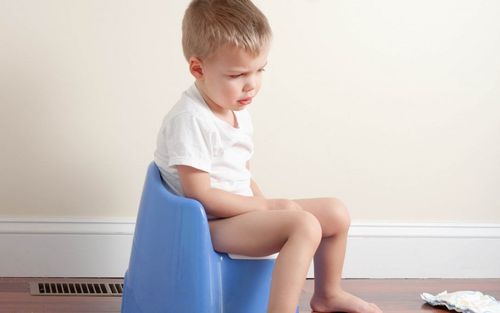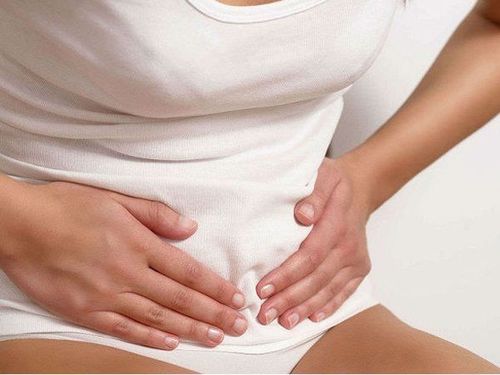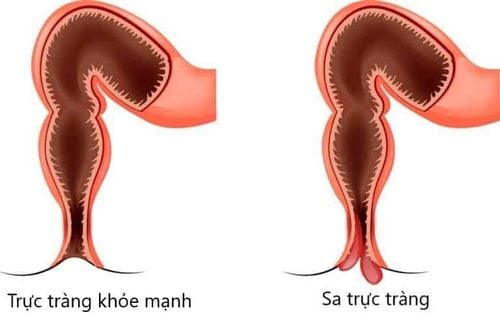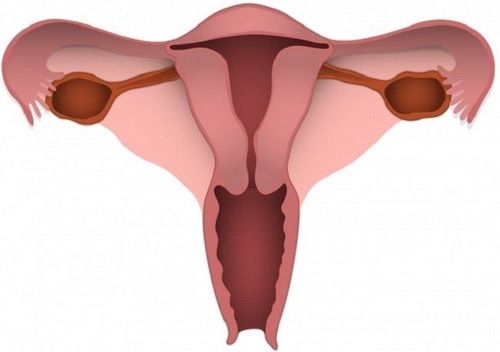This is an automatically translated article.
Urinary incontinence after childbirth is one of the problems that can happen to all women when they go into labor. Incontinence is the result of damage to the anal muscles that is not repaired properly. Treatment of fecal incontinence often requires a combination of medication, exercise, and sometimes surgical repair.
1. Overview of bowel incontinence after childbirth
Problems associated with fecal incontinence after childbirth can prolong and reduce a woman's quality of life and her ability to care for her children.
In a previous study, about 38% of women said they had just started having at least one symptom of fecal incontinence, such as farting or incontinence, over a 3-6 month period after birth.
New research shows that some women may experience fecal incontinence for two years after giving birth. More than half of these women are frustrated and upset by their condition, with more than a quarter saying it negatively affects their psychological well-being. In addition, the researchers say nearly one in five mothers with fecal incontinence say the condition interferes with their ability to care for their baby.
Researcher Jaime Lo, MD, of the University of Utah, Salt Lake City, and colleagues write in the journal Obstetrics & Gynecology: “The postpartum period is an important time for parenting and bonding. children. “The occurrence of fecal incontinence after birth can have important effects on the health of both the mother and the infant as it can affect the mental and physical ability to care for the baby. maternal qualities”.

Đại tiện không kiểm soát làm chất lượng cuộc sống của các mẹ bị ảnh hưởng
2. Effects of urinary incontinence after giving birth on a woman's life
Researchers surveyed 1,247 women in Utah who experienced fecal incontinence at least once in the first two years after giving birth. Results showed that 68% of cases reported symptoms of fecal incontinence 6 months after childbirth and 45% reported symptoms at 12 months postpartum. Up to two years after giving birth, 28% of women reported still having fecal incontinence. More than half of women with fecal incontinence also report signs of concomitant incontinence.
Researchers found that bowel incontinence after childbirth has a significant impact on women's quality of life in a number of ways:
22% of cases felt their condition affected them. negatively on their sports activities. 12% said incontinence negatively affects their leisure activities. 13% said bowel incontinence prevented them from participating in any ride that lasted more than half an hour. Women with severe postpartum incontinence symptoms were 4 to 7 times more likely to have a reduced quality of life than women with mild symptoms.
However, the researchers said that despite the persistent symptoms and negative impact on quality of life, very few women visit the doctor because of symptoms of urinary incontinence. health care facility. The results show that about 80,000 women (2% of births) each year in the United States may experience long-term fecal incontinence related to childbirth. But only about 8,000 people reported these symptoms to the treating doctors.
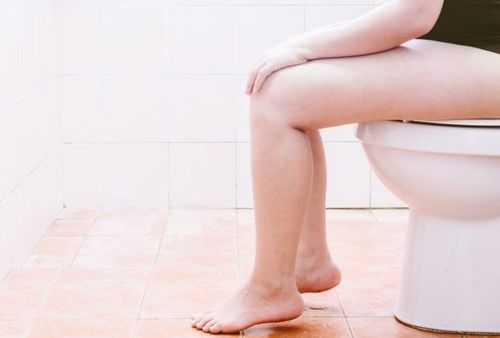
Đại tiện không kiểm soát sau khi sinh khiến các mẹ gặp khó khăn khi tham gia vào các môn thể thao
3. Uncontrollable defecation after vaginal delivery
Despite having surgery to repair an episiotomy vaginal tear that occurred during childbirth, many women continue to experience fecal incontinence. The researchers say the results of their study suggest that incontinence persists for a few years, and that having children in the future makes the problem worse.
Women are particularly vulnerable during their first child birth, especially to a vaginal tear involving the anal sphincter. Having more children and becoming a mother at an older age are also documented risk factors.
Dr. Johan Pollack, and colleagues from Karolinska Institutet Danderyd Hospital in Stockholm, published their findings in the December issue of the journal Obstetrics and Gynecology. They conducted a study of 242 first-time mothers in 5 years. five. All of the women in the study had delivered vaginally, and 36 of them had a severe vaginal tear involving the anal sphincter during their first birth.
Anal sphincter tear is very rare. They are commonly reported in less than 3% of births, the researchers say, but first-time mothers are at a higher risk. Doctors immediately tried to repair the damage with surgery, but the results were not always perfect.
Researchers have defined fecal incontinence as the incontinence of passing gas or passing loose, solid stools. Even in mild cases, sporadic farting less than once per week incontinence is classified as fecal incontinence.
Bloating is the most common type of bowel incontinence. Fecal incontinence was rare and affected a total of 16 women over the course of the study.
Forty-four percent of women with a sphincter tear report anal incontinence during the nine months after giving birth. All cases were bloating and gas and most occurred less than once a week. Five years after giving birth, more than half of these women continue to have persistent symptoms.
One-quarter of cases without sphincter tear also reported fecal incontinence at 9 months postpartum. Most cases are mild bloating that occurs less than once a week. By the time the child is five years old, about a third of these women complain of fecal incontinence.
Women with multiple children are more likely to have incontinence. In mothers without a sphincter tear, the 5-year rate of incontinence was among those who had multiple births, compared with 25% in women with one child.

Các mẹ có thể đến Bệnh viện Đa khoa Quốc tế Vinmec để được thăm khám đại tiện không kiểm soát
Besides, age also matters, researchers say a 30-year-old woman is twice as likely to develop fecal incontinence than a 20-year-old.
Researchers say that if a woman is unable to control her bowel movements by 9 months after giving birth, the problem is unlikely to go away and often gets worse. That's especially true for women with an anal sphincter tear. They were eight times more likely to experience symptoms at 5 years if they had problems 9 months after giving birth.
After giving birth, the mother not only encounters psycho-physiological problems, but many organs in the body are also affected. Incontinence is a condition that many mothers suffer from. If the symptoms affect the quality of life and health, the mother needs to go to the medical center for a general health check after giving birth.
Vinmec International General Hospital is the address for examination, treatment and prevention of many diseases. This is also the place to visit and screen for obstetric and gynecological diseases that many people trust and choose. At Vinmec, there are many specialties integrated with a methodical examination process, so many women with postpartum diseases such as bowel incontinence have been intensively treated with methods such as physiotherapy, nutrition, etc. Exercises that support the bladder, uterus and intestines (pelvic floor muscles) can effectively prevent or even reverse fecal incontinence,...
You can consult and choose the Package of Examination general health to be examined with specialist doctors. The results of the examination will be returned to your home. After receiving the results of the general health examination, if you detect diseases that require intensive examination and treatment, you can use services from other specialties at the Hospital with quality treatment and services. outstanding customer service.
Please dial HOTLINE for more information or register for an appointment HERE. Download MyVinmec app to make appointments faster and to manage your bookings easily.
Reference source: webmd.com




